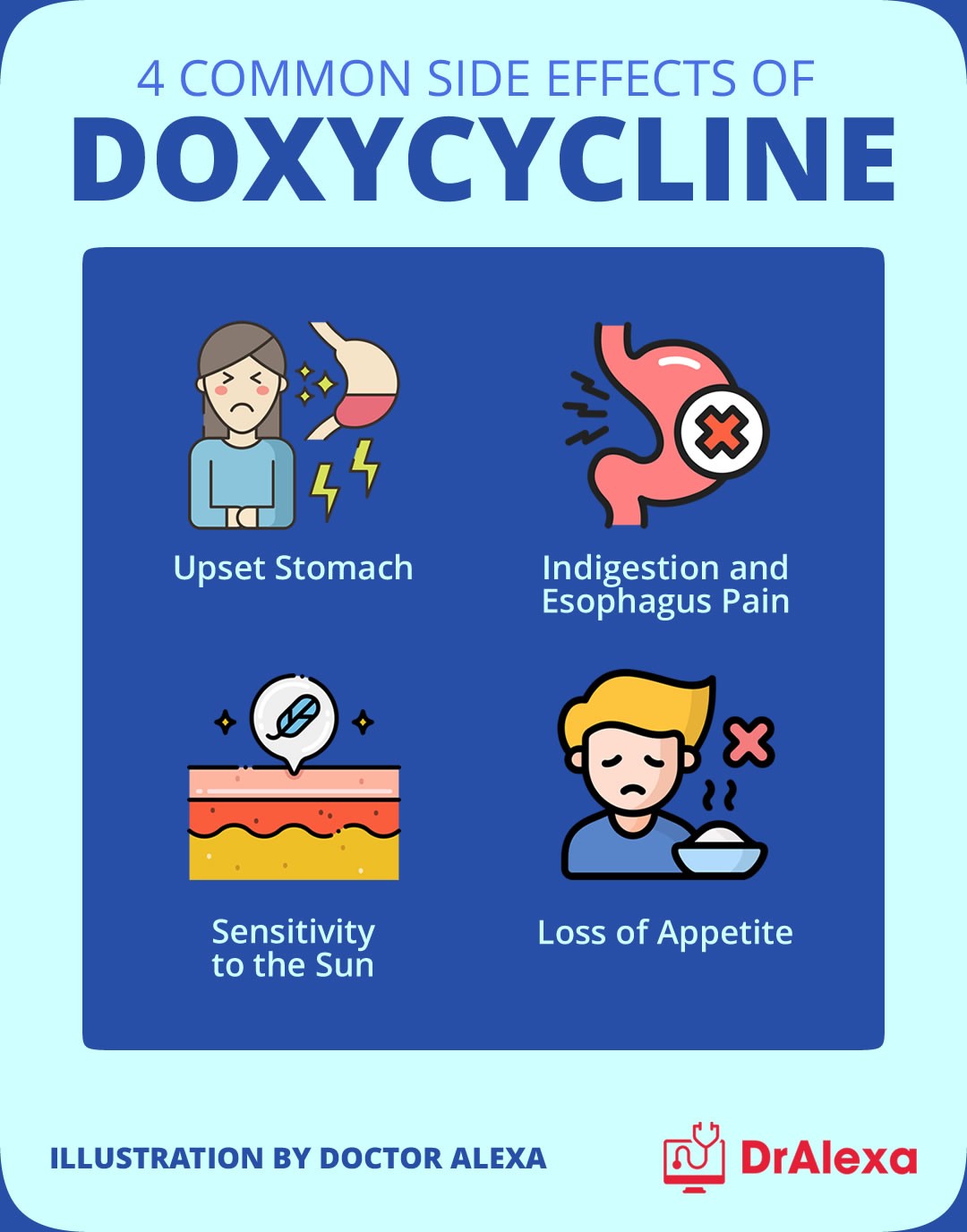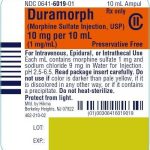
Contents
Side Effects of Doryx (doxycycline)
Doryx (doxycycline) is a synthetic antibiotic derived from tetracycline, used for various infections, including respiratory tract infections caused by Hemophilus influenzae, Streptococcus pneumoniae, or Mycoplasma pneumoniae.
It is also prescribed for non-gonococcal urethritis, Rocky Mountain spotted fever, typhus, chancroid, cholera, brucellosis, anthrax, syphilis, acne, and periodontal disease.
Common side effects of Doryx include tooth discoloration in children under 8 years old, and increased sensitivity to sunburn.
Serious side effects of Doryx may include severe stomach pain, chest pain, irregular heart rhythm, shortness of breath, reduced urination, low white blood cell count, increased pressure inside the skull, and signs of liver or pancreas problems.
Doryx should not be taken with antacids or mineral supplements, as they can interfere with its absorption. It may also interact with warfarin, phenytoin, carbamazepine, barbiturates, penicillins, and oral contraceptives.
Tetracycline antibiotics, like Doryx, can have negative effects on bone development in the fetus, so they are not recommended during pregnancy. The effects on breastfed infants are unknown, so caution should be exercised when using Doryx while breastfeeding.
Important Side Effects of Doryx (doxycycline)
Doxycycline is generally well-tolerated, with the most common side effects being diarrhea, nausea, abdominal pain, and vomiting. Sun sensitivity is also a concern.
Side Effects of Doryx (doxycycline) – Healthcare Professional Perspective
Clinical Trial Experience
A study compared the safety and efficacy of Doryx Tablets, 200 mg to doxycycline hyclate capsules, 100 mg for the treatment of urogenital C. trachomatis infection. Adverse events were reported by participants in both groups, with the most common being nausea, vomiting, diarrhea, and bacterial vaginitis.
Postmarketing Experience
Post-approval use of doxycycline has reported adverse reactions in the gastrointestinal, skin, renal, hypersensitivity, blood, and intracranial regions. Discoloration of the thyroid glands has also been observed, but no abnormal thyroid function has been reported.
Interactions with Other Drugs
Anticoagulant drugs may require dosage adjustment when used with tetracyclines. It is advisable to avoid giving tetracyclines with penicillin due to potential interference. Tetracyclines are also impaired by antacids, iron preparations, and oral contraceptives. Barbiturates, carbamazepine, and phenytoin may decrease the half-life of doxycycline. Fatal renal toxicity has been reported with the combined use of tetracycline and Penthrane. False elevations of urinary catecholamines may occur due to interference with the fluorescence test.
Summary
Doryx (doxycycline) is a synthetic antibiotic derived from tetracycline used for various infections. Common side effects include diarrhea, nausea, abdominal pain, and vomiting. There can be toxic effects on bone development in the fetus, and caution is advised when breastfeeding. Doxycycline is generally well-tolerated, but sun sensitivity is a concern. There may be interactions with other medications, including anticoagulants, penicillin, antacids, iron preparations, oral contraceptives, barbiturates, carbamazepine, phenytoin, and Penthrane. Regular monitoring and caution are necessary during treatment with Doryx.


